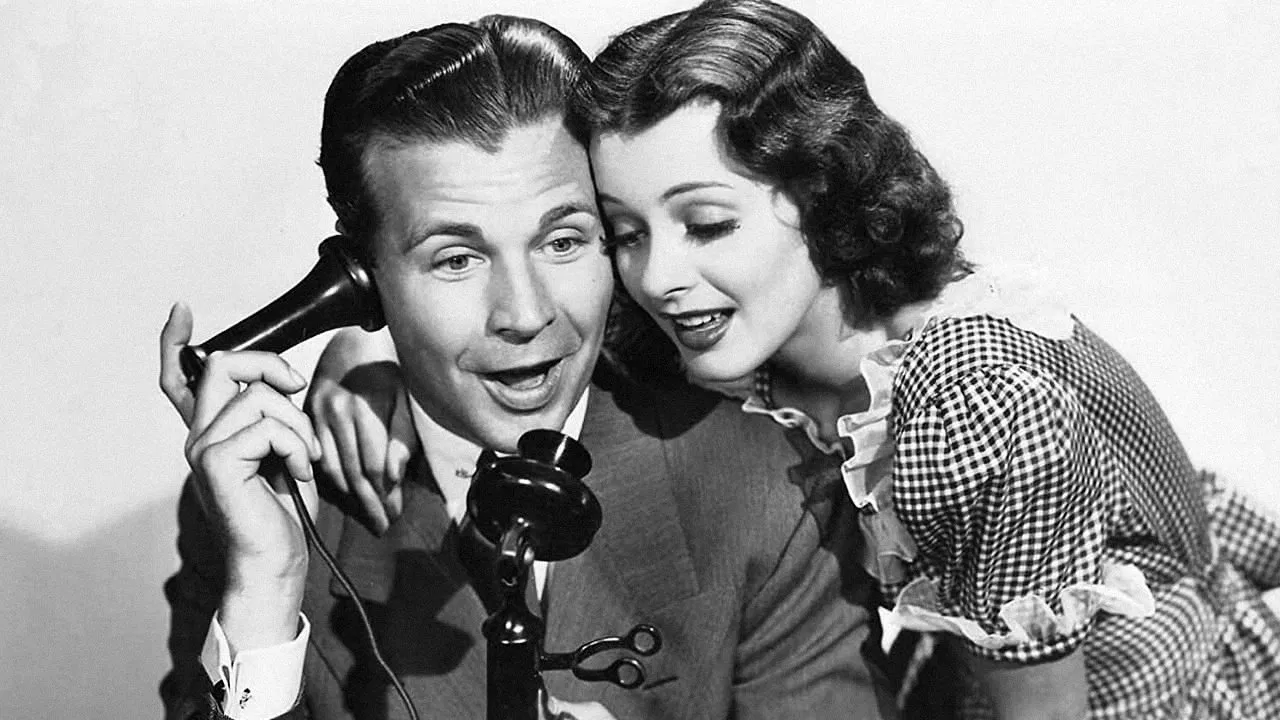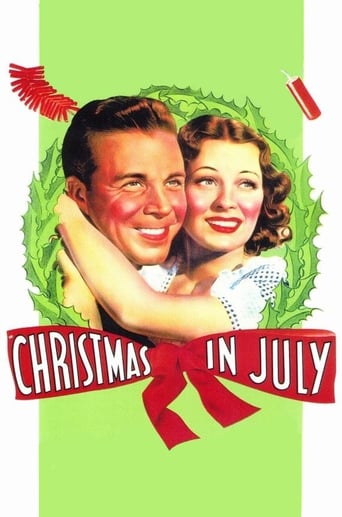

A Preston Sturges romantic comedy, with a cast of colorful characters. Written and directed by Sturges, he refreshed a 1931 script 'A cup of Coffee' as if nothing happened since the early days of the Great Depression. We are in New York, among the working class who struggle to make ends meet in what passes for a typical neighborhood of tenements, with the usual make up of 'ethnic' New Yorkers, save the blacks. Dick Powell in one of his last role as juvenile (42 Street for example)is Bill MacDonald a dream who enters contests to win the big prize. He never does, but this time he thinks he shall: he entered the Medford Coffee contest for the best new slogan which will put a good spin on flat advertising. Ellen Drew play his girl friend who sticks with him through thick and thin. There is a wonderful scene where Medford is on the air in a coast-to-coast hook to announce the winner from over 2 million entries. But the jury is deadlocked in a comic scene that years later will turn up in Paddy Chayefsky's 'Twelve Angry Men'. The hold out is the wonderful comic actor William Demarest. And Franklin Pangborn, for once is not type cast as a pansy, does a good turn as the radio announcer and Raymond Walburn as the excitable Dr. Medford. To drive home the comic spin of 'Christmas in July', Macdonald works in the billing department of a rival coffee maker. His office mates hear him telephoning Medford Coffee to find out if the jury has picked winner, and they take him for a sap. So in the days of telegrams, they cut and paste a message saying MacDonald hit the jackpot. And from this the story takes off at a hop-skip-and jump speed. His boss at Baxter Coffee finds out he's a man of idea, even though Baxter's advertising department considers him a dreamer. But the boss respects the power of money, and in scene there's our Bill with cigar in his mouth coming up with a perky slogan and a plan for Baxter. And so it goes, a large check of $25,000 (in today's dollars worth millions?)is an open sesame to buy an engagement ring, a fur coat, a sofa bed for his mum, and and endless number of gifts for his neighbors on the street he lives in. The farce is exposed, but Powell takes it in his stride, nothing ventured, nothing lost'. As he and Drew go back to his new office at Baxter ready to confess, the janitor Sam (the only black in the film and a yessum Mr. Bill stereotypical line on his smiling, chuckling facy)is asked by MacDonald if a black cat rubbing his leg is a bearer of bad luck. And the wise Sam chortles 'it depends what comes after'... Try to find the film on YouTube, for the ironic but guessable denouement a la O. Henry.
... View MoreThis early Preston Sturges satire suffers by comparison to his later films, but even if it never reaches the dizzy heights expected of a Sturges comedy it still presents an enjoyable (if at times too predictable) farce. The earthbound scenario offers none of the director's usual madcap flights of fancy, following an unlucky entrant in a marketing slogan contest (Dick Powell) who mistakenly believes himself the winner of a $25,000 grand prize. It's all the result of an innocent practical joke, but the gag backfires when everyone else, including the contest sponsor, believes it too. The unsuspecting Powell suddenly finds the world off his back and at his feet, and the consumer frenzy that follows shows glimpses of the classic Sturges brand of anarchy, sadly lacking from the rest of the film. Lots of running around and shouting at double-quick speed can't really camouflage the lack of belly laughs, but the cast works up plenty of enthusiasm, and the final image (look quick) is wonderful.
... View MoreThis was one of Preston Sturges's best movies on his first time directing that included "The Great McGinty" and "The Lady Eve. The movie stars Dick Powell and Ellen Drew as a couple who are engaged but Powell wants to wait to get married because they don't make enough money and his mind is on a contest for $25,000 that he entered for a slogan of a coffee company. Powell's friends at work play a trick on him by writing a fake letter saying he won the prize money but once Powell opens it they can't get to him on time to tell him it's a fake. Then Powell gets a promotion and starts to buy everything for all his friends and family but not knowing it's a fake. It's a very funny movie that's one of Sturges's least known work.
... View MoreCould this be one of Preston Sturges's most under-appreciated comedies? -- in addition to being one of his funniest. In "Sullivan's Travels," Preston Sturges has the Joel McCrea character speak admiringly of fellow director Frank Capra. In "Christmas in July" possibly Sturges was trying to suggest to Capra how to handle sentiment without falling into sentimentality --- the scene where Dick Powell is handing out presents to his neighbors, and he gives a doll to a crippled girl in a wheelchair -- a remarkably tender moment in the midst of a hectic funny scene -- done with just the right deft touch.One of my favorite lines occurs when the owner of the Maxford Coffee Company (played by bug-eyed character actor Raymond Walburn) sarcastically tells apparent contest-winner Powell, "I can't wait to give you my money!"Sturges also shows that you can have plot complications without resorting to stock villains --- no simplistic class warfare here, such as you'd find in a Frank Capra film -- rich and poor are equally lovable -- even gruff opinionated William Demarest. Sturges embraces all of humanity, all classes.This film has an exceptionally satisfying "feel-good" ending --- the audience is made aware of the exuberantly happy ending before the main characters realize the change in fortune about to befall them --- the camera zooms across the city to reveal that a decision is going to unravel all the plot complications --- it's a breathlessly whirlwind revelation to the audience! A unique "feel-good" ending that tops all other "feel-good" endings! As far as I know, the first person to point out the unique nature of this ending was Dale Thomajan in his 1992 book "From Cyd Charisse to Psycho : a Book of Movie Bests."
... View More